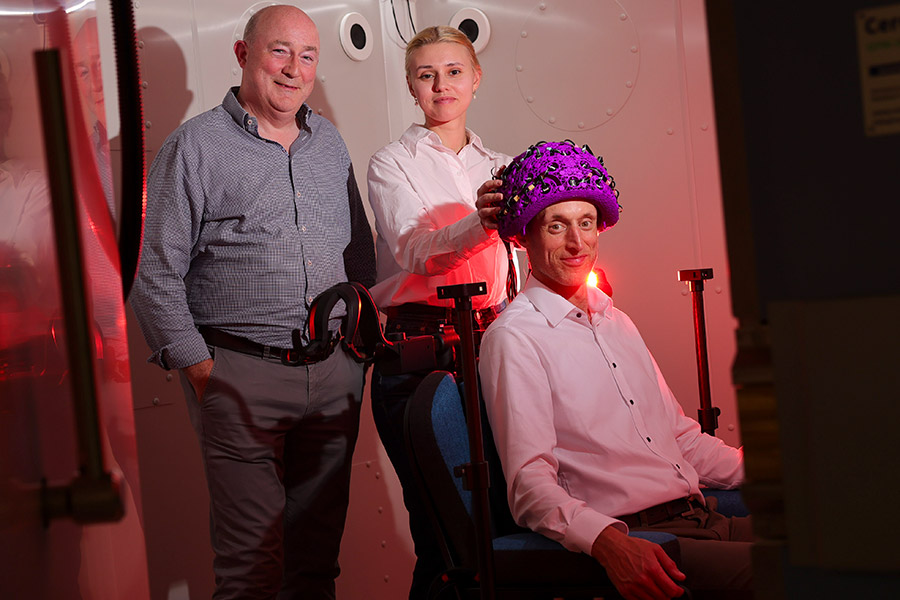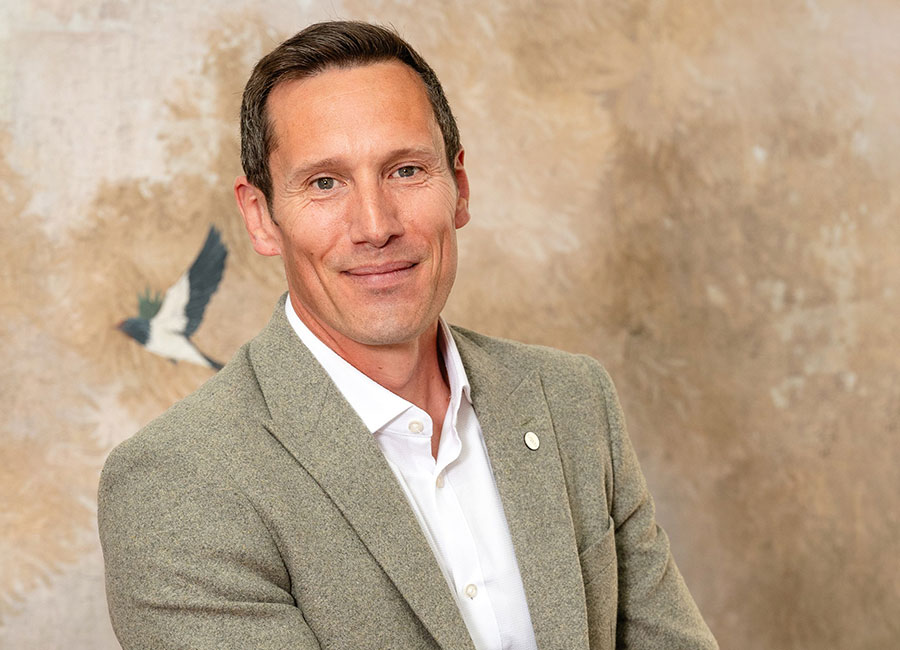Human ingenuity has yielded some outstanding triumphs over the last 12 months, including advances in the fields of space tech, organ transplants and cancer vaccines, writes Clare Wilson.
Here are some of the highlights:
CATCHING A ROCKET
The most impressive scientific feat of 2024 was Elon Musk's company, SpaceX, managing to catch a rocket mid-air as it returned to land, something never before achieved - or attempted - in the history of space flight.
The vehicle was the huge "booster" stage of SpaceX's reusable Starship rockets, designed to be used in future missions to the Moon and Mars.
It was caught in October, when the booster rocket returned to the Texas launchpad a few minutes after take-off. It manoeuvred over the launch tower, which grabbed it with two giant motorised arms, nicknamed chopsticks.
The method is by no means perfect, as a second catch attempt in November had to be aborted. Still, the initial achievement is seen as a triumph for SpaceX's daring and innovative mindset.
It capped a series of successes for private space flight companies in 2024.
In September, SpaceX also became the first private company to achieve a civilian "spacewalk" - or at least, two crew members tested their spacesuits by partially exiting their craft, although the lower halves of their bodies stayed inside.
In February, Texas firm Intuitive Machines became the first company to land a spacecraft on the Moon.
PIG ORGAN TRANSPLANTS
A world first came in the field of organ transplants, when three Americans each received a kidney from pigs genetically engineered to trigger less of an immune reaction - a barrier to interspecies transplants that scientists have been trying to overcome for decades.
Sadly, both of the first two recipients died within two months of surgery, but this does not seem to have been due to the pig kidneys being rejected or malfunctioning.
Both were in poor health to begin with, which was partly why they couldn't receive human kidneys.
Donor kidneys are in such short supply they can only be given to those most likely to survive.
Close inspection showed neither kidney had been rejected by the patients' immune systems.
And last month, Towana Looney became the third person to receive a pig kidney transplant.
Looney was in better health than the first two recipients. As of late December, no major problems have been reported.
Kidney transplants are the most common type of organ transplant and can be life-saving, but a shortage of donor kidneys means many people die while waiting for one.
If pigs become an alternative source, there could be an end to the kidney waiting list.
HIV PREVENTION JAB
In a breakthrough that's likely to be rolled out soon, a twice-yearly injection has been developed that can stop people from catching HIV when they have unprotected sex.
The strategy of HIV prevention by taking a daily pill - sometimes called Prep, for pre-exposure prophylaxis - already exists.
But people can forget to take daily tablets, so long-lasting injections should work better. This idea was proven to work in June, when a trial of a drug called lenacapavir found the strategy had 100 per cent effectiveness.
The journal Science named the medicine its breakthrough of the year.
Another medical milestone is the conversion of an anti-cancer cell therapy called CAR-T cells into a treatment for autoimmune diseases.
So far it has been tested on people with severe and relatively rare diseases but the hope is that the same principle could also be used in more common conditions, such as rheumatoid arthritis.
CANCER VACCINES
A group of particularly nasty cancers have the unusual property of being caused by a virus, the human papillomavirus, or HPV, which is generally passed on through sex.
Vaccines can stop HPV in its tracks, and so, since the late 2000s, many countries, including the UK, have been offering this vaccine to teenagers.
It has emerged the HPV vaccine is working better than we hoped at preventing cervical cancer and genital warts, also caused by this virus. In places with high uptake, it is even slashing the rate of these conditions in unvaccinated people because the vaccine is causing herd immunity.
Most recently, it emerged the vaccine is just as effective if people get only one dose. It was previously given as two doses, a year apart.

This development has now made it a more practical option for developing countries to add to their vaccination programmes.
In the last couple of years, more and more low-income countries have started offering the HPV jab to their teenagers - something that will save many lives.
"We introduced the vaccine for girls, and then we found it worked in men as well," said Professor Mark Jit, a vaccine expert at New York University.
"We found it works against different kinds of cancers. And now we've found even one dose works.
"The more we look at this vaccine, the better it seems to get."
Photo: SpaceX successfully launched the latest test flight (5th) of Starship. (Photo by SpaceX / Handout/Anadolu via Getty Images)











